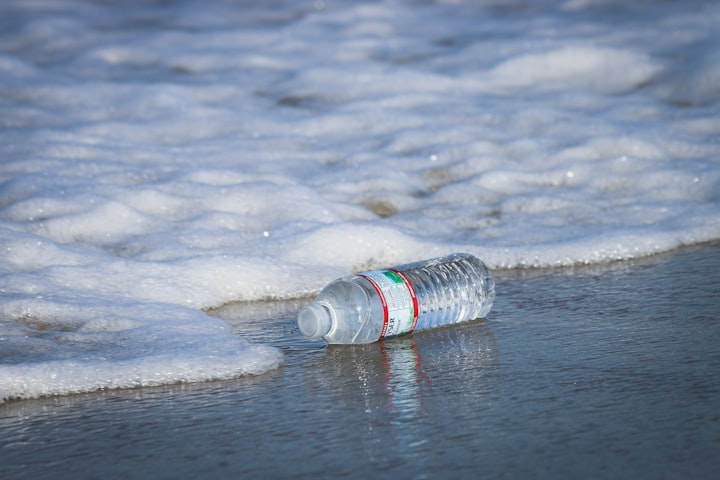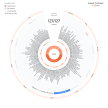
PLASTICS can take hundreds of years to decompose, leach harmful chemicals that spread into
groundwater when disposed of in landfills, and disrupt marine habitats. The single-use plastic bag
epitomises a throwaway culture that continues to wreak environmental havoc. More than 70
countries, according to a United Nations paper, have adopted a full or partial ban on single-use plastic
items. Many other nations have imposed a charge or tax on it. An expert’s take on the ineffectiveness
of the ban in India is a call to rethink strategy. Centre for Science and Environment director Sunita
Narain says the ban has to be enforceable to begin with, laying emphasis on understanding where
and why plastic is not getting recycled.
The world over, only 10 per cent of plastic is being recycled. The industry and the consumer have
been disappointingly slow in exploring reusable options. Policy advisers say it is essential that waste
procedures continue to transition away from a single-use model. As Narain points to the benefits of
integrating the informal sector into the waste management systems, there is much appreciation for
the waste-pickers. But for their efforts to collect every piece of recyclable plastic, she says, India
would be drowned in waste. A push to the household-level wet and dry waste segregation, a key
ranking parameter of the Swachh Bharat Mission 2.0, is advocated as the way forward.
There’s no definitive answer to what’s the greenest replacement for a single-use plastic bag.
Alternatives have to be real, sustainable solutions. For a start, reuse whatever bags you have, as
many times as you can. Be an active participant in a community-based approach that rewards
reduction of waste. Promote composting of kitchen waste. Take that small step but stick to it,
marking your rejection of an unsustainable way of living. Others will follow.
Summary of the Editorial
1. Plastics take a significant amount of time to decompose, leaching harmful chemicals into
groundwater and disrupting marine habitats.
2. The single-use plastic bag epitomizes the detrimental throwaway culture prevalent today.
3. Over 70 countries have adopted a full or partial ban on single-use plastic items, according to
the United Nations, with several others imposing taxes or charges on such products.
4. The ban's ineffectiveness in India prompts the need to rethink strategies around plastic use
and disposal.
5. Sunita Narain, the Centre for Science and Environment director, emphasizes the need for an
enforceable ban and understanding the reasons behind the lack of plastic recycling.
6. Globally, only 10% of plastic is being recycled, reflecting slow progress from the industry and
consumers towards reusable options.
7. Policy advisers suggest that it's vital to shift waste procedures away from the single-use model.
8. Narain highlights the advantages of involving the informal sector, such as waste-pickers, in
waste management systems.
9. The importance of household-level waste segregation, a key aspect of the Swachh Bharat
Mission 2.0, is underscored as a part of the solution.
10. There is no definitive greenest replacement for single-use plastic bags yet.
11. Alternatives should be sustainable and practical, rather than just replacements.
12. The editorial encourages reusing bags as much as possible as an initial step towards
sustainable living.
13. It advocates for community-based approaches that reward waste reduction.
14. Composting kitchen waste is suggested as a beneficial practice.
15. Taking small, consistent steps towards sustainable living is advised, with the hope that others
will follow suit.
1. According to the passage, what does Sunita Narain, the Centre for Science and Environment
director, suggest to deal with the plastic crisis?
A. She suggests to focus on banning single-use plastic items in all countries as a primary strategy.
B. She suggests that the plastic ban should be enforceable and emphasize understanding where
and why plastic is not getting recycled.
C. She argues that the entire world should move towards exploring reusable options at a rapid
pace.
D. She advises that all countries should impose charges or taxes on single-use plastic items as a
means to reduce their usage.
2. Which of the following statements is incorrect based on the passage?
A. More than 70 countries have imposed some form of restrictions on single-use plastic items.
B. Only about 10 per cent of plastic is being recycled globally.
C. The Centre for Science and Environment director, Sunita Narain, argues that the plastic ban in
India has been highly effective.
D. A focus on household-level wet and dry waste segregation is suggested as a part of the
solution.
3. What are the suggested methods for addressing the plastic crisis as mentioned in the passage?
A. Initiating a global ban on the production of all plastic products.
B. Shifting to using only biodegradable alternatives for single-use plastic bags.
C. Reusing existing bags, encouraging waste reduction within the community, promoting
composting of kitchen waste, and adopting sustainable living habits.
D. Importing and using bags made from rare and expensive materials to limit their widespread
usage.
4. What is the tone of the passage?
A. Indifferent
B. Alarmist
C. Persuasive
D. Ironic
5. What is the main theme of the passage?
A. The history of plastic production
B. The environmental impact of single-use plastics and the need for sustainable solutions
C. The economic benefits of plastic use
D. The role of the informal sector in waste management






Comments
There are no comments for this story
Be the first to respond and start the conversation.